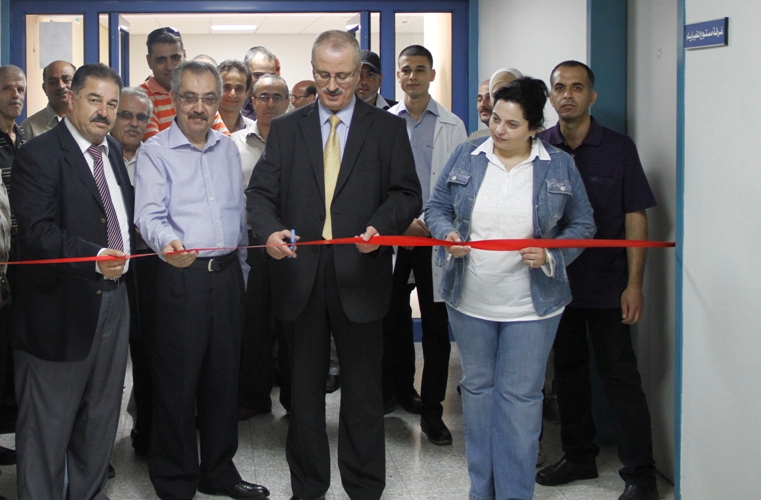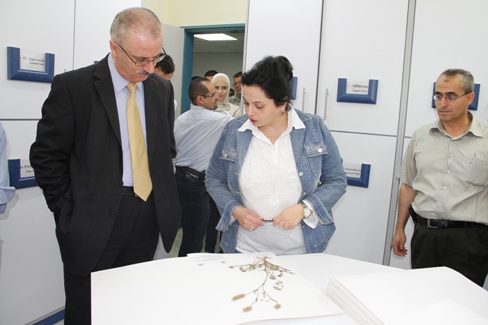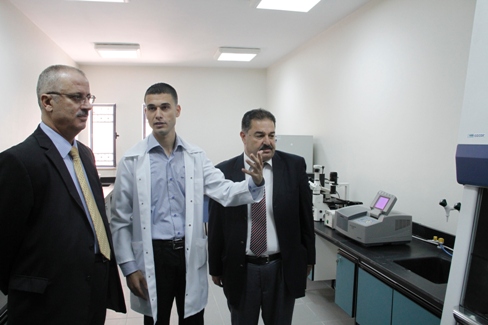The Faculty of Science at An-Najah Inaugurates a Herbarium, an Advanced Biotechnology Lab and a New Teaching Lab
September 8th. Under the auspices of the University of President, Prof. Rami Hamdallah, the Faculty of Science at An-Najah University inaugurated a Herbarium, an advanced biotechnology lab and a new teaching lab equipped with cutting edge technologies. Attendees included Vice Presidents, a number of Faculties’ Deans, Dr. Sulaiman Khalil, Dean of the Faculty of Science, as well as the Faculty’s staff and others.

After the inauguration ceremony, the attendees visited the different parts of the Herbarium where Dr. Ghadeer Omar, the person in charge of the Herbarium, gave a presentation about the different plant families that the Herbarium includes. The Herbarium contains more than 366 different plant samples that were collected from various Palestinian villages. Dr. Omar explained that this Herbarium is considered a plant library that provides a substantial resource and reference for researchers and Master students.
In his speech, Prof. Hamdallah, thanked the Faculty of Science represented by its Dean and staff for their continuous effort and work to develop the Faculty and add new facilities and suggest more developments that are essential to the field of science. He added that the University’s administration will continue to support the Faculty with respect to financial support and the purchase of scientific and technological equipment needed for the scientific work conducted at the Faculty’s different departments.
Dr. Khalil in turn thanked the University President for the generous support that he provides to the Faculty which enables it to continue to develop and excel on the local and international levels. Moreover, he explained that the inauguration of the Herbarium is considered a unique step towards providing a research reference for the Palestinians that compete with that of Arab and international universities. Additionally, he said that information about the types of plants that the Herbarium contains will be published on the University’s official website for researchers and interested to access easily and effectively.

The importance of this Herbarium stems out from the unique natural diversity that Palestine has due to its distinguished geographical location which lies between three main continents (Asia, Africa and Europe). This location has led to diversity in climate, geography and the distribution of unique species of fauna and flora. The ecological diversity has a crucial role in the economy of Palestine especially flora diversity since the majority of plants in Palestine is still used as food and as medicine.
The Herbarium contains a wide variety of dried plants that were sampled from different natural habitats in Palestine; this collection of plants represents a global reference for researchers around the world who could use these samples to conduct studies to identify which species of flora are threatened.

Since there is no such center that specializes in such a field in Palestine, the establishment of this Herbarium at the University is a major step for the study and preservation of plant species and diversity in the country.



